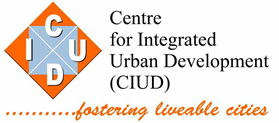CIUD organized a two-day in-house workshop for its staffs on 6th and 7th October, 2017 with the key agendas of developing organizational Gender Equality and Social Inclusion (GESI) Policy and Protection from Sexual Exploitation and Abuse (PSEA) Code of Conduct. With the support of Oxfam in Nepal, the workshop was attended by over thirty staffs and board members of CIUD as well as the representatives of Oxfam. Mr.
CIUD organized a two-day in-house workshop for its staffs on 6th and 7th October, 2017 with the key agendas of developing organizational Gender Equality and Social Inclusion (GESI) Policy and Protection from Sexual Exploitation and Abuse (PSEA) Code of Conduct. With the support of Oxfam in Nepal, the workshop was attended by over thirty staffs and board members of CIUD as well as the representatives of Oxfam. Mr. Ratna Kaji Bajracharya, the formal government officer, who had the key expertise on GESI and PSEA issues from the national and international perspectives, facilitated the workshop. The first day of the program was fully concentrated on GESI Policy. The facilitator started the program by analyzing the situation of CIUD’s previously drafted GESI Policy with full participation of the staffs. The facilitator explained GESI related terminologies, introduced national and international GESI policies and the importance of GESI Policy for an organization. A draft of framework for GESI Policy was developed by involvement of staffs through the extensive group work. The second day of the program was mainly focused on various aspects related to PSEA Code of Conduct. The facilitator discussed about the situation of CIUD’s PSEA Code of Conduct with participation of the staffs. The facilitator explained the concept of PSEA Code of Conduct, its element and the importance of PSEA Code of Conduct for an organization. A draft of framework for PSEA Code of Conduct was developed by involvement of staffs through group work. It has been expected that the policies should soon be drafted and shall be officially endorsed by the board before their implications in the organizations as well as in the program and project areas.
